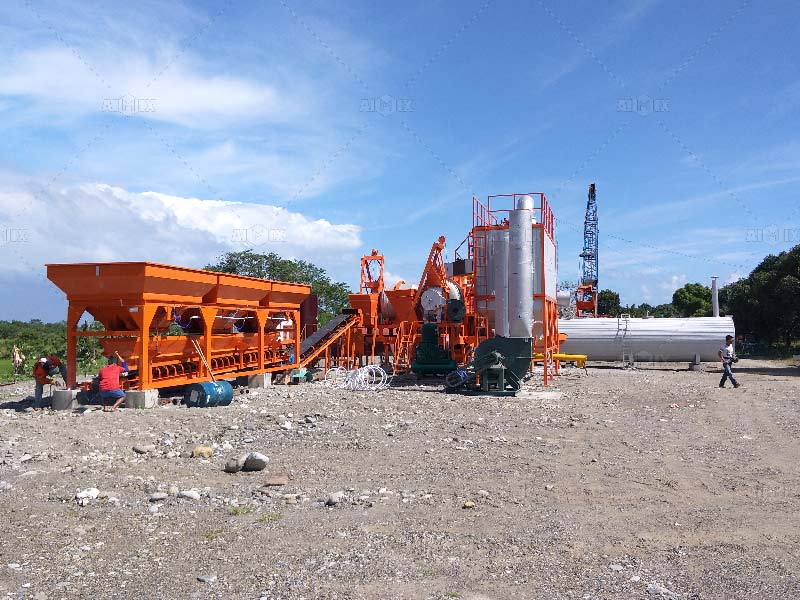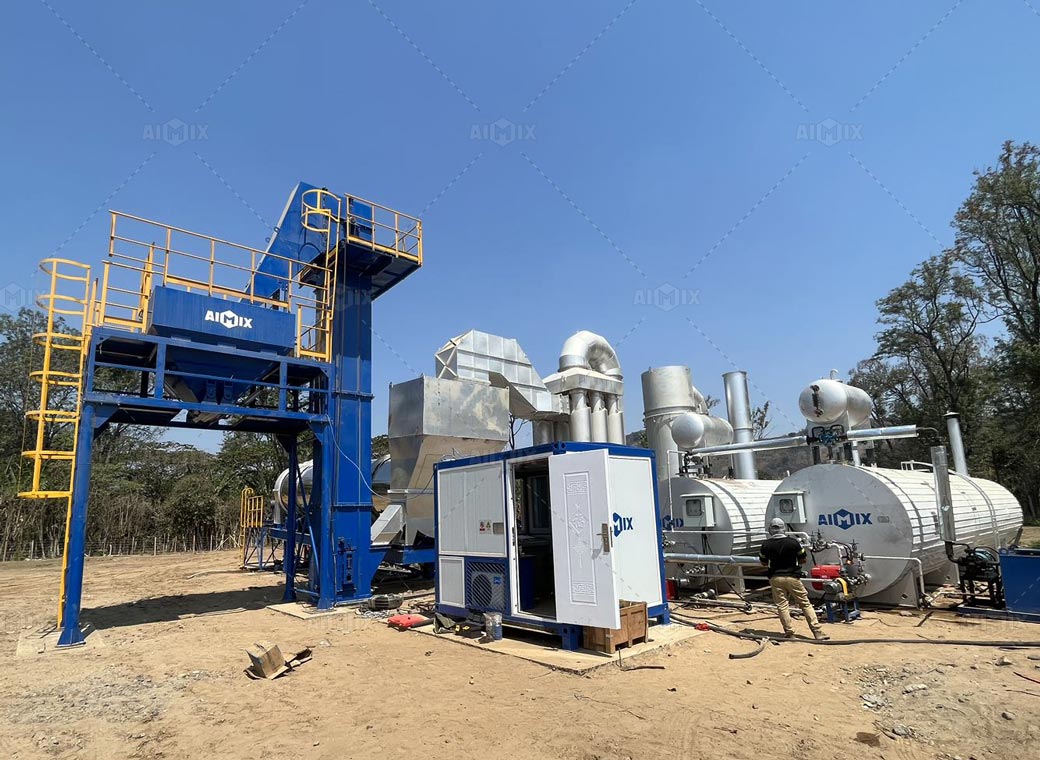Asphalt plants are at the heart of road and bridge construction, producing the materials needed for durable, high-quality pavement. Over time, however, the equipment used in these plants can become outdated or inefficient. Upgrading the equipment of an asphalt plant is a strategic move that can significantly improve production efficiency, reduce operating costs, and enhance the quality of the asphalt produced. But how exactly can you upgrade your asphalt plant?
In this article, we’ll discuss the key steps involved in upgrading asphalt plant equipment, and how these improvements can impact your business, particularly in terms of production capacity and cost savings(precio de planta de asfalto).
Why Upgrade Asphalt Plant Equipment?
Upgrading the equipment of an asphalt plant is an investment that can pay off in multiple ways. Below are the primary benefits:
- Increased Efficiency: Newer equipment typically operates faster and more efficiently, reducing production downtime and increasing output.
- Better Quality Control: Upgraded equipment allows for greater precision in mixing asphalt, improving the quality and durability of the final product.
- Cost Savings: Newer equipment tends to be more energy-efficient, leading to reduced fuel and maintenance costs over time.
- Environmental Compliance: New technology often includes features that comply with stricter environmental regulations, reducing emissions and minimizing the carbon footprint of the plant.

Key Equipment Upgrades for Asphalt Plants
When upgrading an asphalt plant, it’s essential to focus on key pieces of equipment that can boost productivity, enhance product quality, and lower operating costs. Here are some areas where you can consider making upgrades.
1. Upgrade to a More Efficient Asphalt Mixer
The heart of any hot mix asphalt plant(planta de asfalto en caliente) is the asphalt mixer. If your current mixer is old or underperforming, upgrading to a newer, more efficient model is one of the best ways to improve overall plant performance. Modern mixers are designed to handle higher volumes, operate more efficiently, and provide a more consistent mix.
Some advanced mixers are equipped with automated systems that can adjust mixing parameters based on real-time data, ensuring higher quality and less waste. If your plant produces large quantities of hot mix asphalt, investing in a high-capacity mixer could be a game-changer for your operations.
2. Upgrade the Dryer and Burner Systems
The drying and heating process is one of the most energy-intensive aspects of asphalt production. Old dryer systems may waste energy, resulting in higher fuel consumption and increased operating costs. By upgrading to a more efficient burner system, you can reduce energy consumption while improving the overall quality of the asphalt.
Modern dryers and burner systems are designed to heat the aggregate more evenly, which improves the quality of the mix and reduces the need for additional additives. Some systems even include advanced controls to optimize fuel usage and minimize emissions, helping you comply with environmental regulations.
3. Incorporate a New Asphalt Storage and Loading System
Another key area for upgrading is the storage and loading system. Efficient storage ensures that asphalt is stored at the right temperature and is available for immediate use when needed. Upgrading your storage and loading system can help improve production flow, reduce downtime, and eliminate errors in the distribution of asphalt.
Consider investing in more advanced silos, conveyor belts, and automated loading systems. Automated systems can reduce manual labor and improve accuracy in loading, which is critical when large volumes of hot mix asphalt are being produced.
4. Invest in a Mobile Asphalt Plant for Flexibility
For contractors working on multiple job sites, a mobile asphalt plant provides the flexibility needed to produce asphalt wherever it’s required. Mobile plants are compact and easy to transport, making them ideal for short-term projects or projects in remote locations.
Upgrading to a mobile asphalt plant could be an excellent option for expanding your business or taking on projects that require mobility. These plants offer the same high-quality mix as traditional plants, but with the added benefit of being portable and adaptable to different locations.
5. Upgrade to a Mini Asphalt Plant for Smaller Projects
For companies that focus on smaller projects or need a more cost-effective option, a mini asphalt plant could be the perfect solution. These compact plants are ideal for producing asphalt in smaller quantities and can be easily moved to various job sites. While mini plants typically have a lower production capacity, they still deliver high-quality asphalt, making them an excellent choice for local road repairs, small paving projects, or smaller construction ventures.
Upgrading to a mini asphalt plant offers businesses the flexibility to take on smaller projects without the high initial investment of a full-scale asphalt plant.

Assessing Asphalt Plant Prices for Upgrades
Before proceeding with an upgrade, it’s important to understand the costs involved. The asphalt plant price can vary depending on the type of equipment, the plant’s capacity, and the level of automation required. Here are some price considerations:
- Hot Mix Asphalt Plant: The price of a hot mix asphalt plant varies significantly based on the size and capacity. A high-capacity plant can cost upwards of $500,000, while smaller models may cost between $100,000 and $300,000.
- Mobile Asphalt Plant(planta de asfalto movil precio): Mobile plants typically cost between $150,000 and $350,000, depending on their features and production capabilities.
- Mini Asphalt Plant: Mini plants are the most affordable option, with prices ranging from $50,000 to $150,000.
While the initial investment can be substantial, upgrading to modern equipment can lead to long-term savings in terms of energy efficiency, maintenance, and labor costs.
Steps to Take When Upgrading Your Asphalt Plant
Upgrading an asphalt plant requires careful planning and execution. Here are the steps you should follow to ensure a smooth and cost-effective upgrade:
1. Conduct a Thorough Assessment
Before you begin upgrading, assess the current performance of your plant. Identify areas where equipment is outdated or underperforming, and determine how upgrading these parts will improve overall operations.
2. Research Available Upgrades
Explore the various equipment options available for upgrading, including new mixers, dryers, burner systems, and storage solutions. Consider both performance and price when selecting equipment.
3. Consult with Experts
Reach out to manufacturers and suppliers who specialize in asphalt plant equipment. They can offer advice on the best equipment for your needs and help you understand the costs involved.
4. Plan for Installation and Downtime
Upgrading equipment may require plant shutdowns. Plan the installation carefully to minimize downtime and avoid disruptions to your operations.
5. Monitor the Results
Once the upgrade is complete, monitor the performance of the new equipment. Track production rates, energy consumption, and asphalt quality to ensure the investment pays off.
Conclusion
Upgrading the equipment of an asphalt plant can significantly improve your production efficiency, reduce costs, and enhance the quality of the asphalt produced. Whether you opt for a hot mix asphalt plant, a mobile asphalt plant, or a mini asphalt plant(mini planta de asfalto), choosing the right upgrades can have a profound impact on your business. By investing in modern, efficient equipment, you can stay ahead of the competition, reduce environmental impact, and ensure your plant operates at peak performance for years to come.